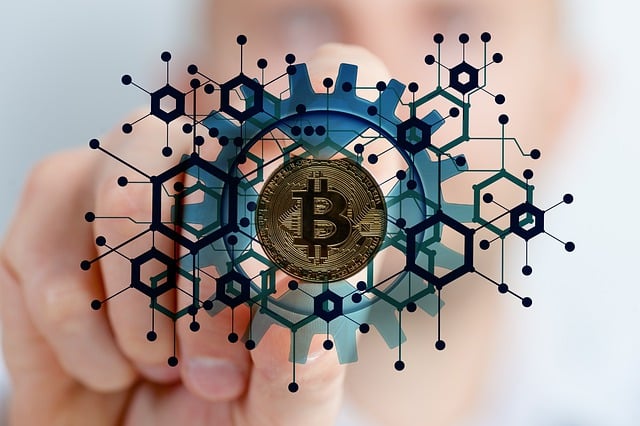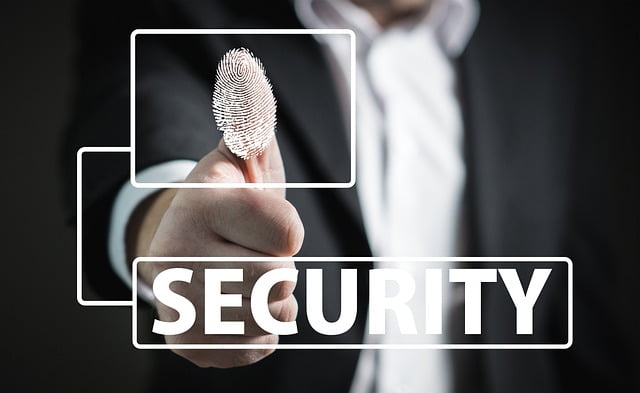The Ultimate Guide to VPNs and Digital Privacy

What is a VPN?
Definition and Basic Concept
A VPN (Virtual Private Network) is a technology that allows you to create a secure, encrypted connection over a less secure network, typically the internet. By using a VPN, your data is transmitted through a private “tunnel” created between your device and the VPN server. This masks your real IP address and protects your online activity from being visible to third parties, such as hackers, ISPs, or even governments.
Essentially, a VPN provides a secure way to browse the internet, access remote networks, and ensure privacy by preventing others from tracking or monitoring your online activity.
How VPNs Work
- Encryption: VPNs use encryption protocols to ensure that data transmitted between your device and the VPN server is encrypted. This encryption makes it difficult for anyone to intercept and decipher your data.
- IP Address Masking: When you connect to the internet through a VPN, your real IP address is replaced with the VPN server’s IP address. This disguises your true location and identity, making it harder for websites or services to track you.
- Secure Tunneling: VPNs create a secure tunnel between your device and the VPN server. All data that passes through this tunnel is encrypted, protecting it from prying eyes on public or unsecured networks.
- Remote Access: VPNs can also be used to access resources on remote networks securely, such as work files or applications, while ensuring data transmission is protected from potential cyber threats.
Why is Digital Privacy Important?
Overview of Digital Privacy
Digital privacy refers to the protection of your personal data and online activities from unauthorized access, tracking, or surveillance. In today’s digital age, a vast amount of personal information—such as browsing history, location data, and communication—is shared online, often without the knowledge or consent of users. Protecting digital privacy involves implementing measures that ensure individuals maintain control over their personal information and how it is used or accessed by third parties.
Key Reasons to Protect Privacy Online
- Prevent Identity Theft: Protecting personal information such as login credentials, financial details, and social security numbers is critical to prevent identity theft, fraud, and financial loss.
- Avoid Unwanted Tracking: Websites, advertisers, and even hackers may track your online activities for purposes such as targeted advertising or malicious intent. Protecting your privacy helps you avoid this unwanted surveillance.
- Data Security: Without proper privacy protection, your sensitive data could be exposed to cybercriminals, especially when using unsecured networks, leading to potential breaches or attacks.
- Freedom from Censorship and Surveillance: In some countries, internet activity is monitored, and certain websites are restricted. VPNs help individuals maintain anonymity and access blocked content, while also protecting their privacy from government surveillance.
- Control Over Personal Information: Maintaining digital privacy ensures that you retain control over who accesses and uses your personal information. It limits the ability of companies, organizations, or third parties from collecting and selling your data without consent.
VPNs are a vital tool in protecting digital privacy, and safeguarding personal information online is crucial in today’s increasingly connected world.
Understanding VPNs
Types of VPNs
There are several types of VPNs, each designed for different purposes based on personal or business needs.
Personal VPNs
- Definition: Personal VPNs are typically used by individuals who want to secure their online activity, protect their privacy, and access geo-restricted content from various locations.
- Features: These VPNs encrypt your internet traffic and hide your IP address, allowing for anonymous browsing and secure use of public networks.
- Popular Use Cases: Streaming geo-restricted content, protecting data on public Wi-Fi, avoiding online tracking, and enhancing privacy for day-to-day internet use.
Business VPNs
- Definition: Business VPNs are designed to provide secure access to a company’s internal network, particularly for remote employees or workers connecting from different locations.
- Features: These VPNs allow secure communication between employees and company resources, ensuring that sensitive corporate data is encrypted and protected from external threats.
- Popular Use Cases: Secure access to internal files, databases, or applications, especially for remote workforces and employees working from home or abroad.
Free vs. Paid VPNs
- Free VPNs:
- Advantages: No cost, easy to set up, can be useful for occasional users.
- Drawbacks: Limited server locations, slower speeds, data caps, less reliable encryption, and often monetized by selling user data or showing ads. Privacy concerns can be significant.
- Paid VPNs:
- Advantages: Offer robust security features, faster speeds, more server locations, better encryption protocols, no data limits, and superior customer support. Paid services are less likely to compromise user privacy.
- Drawbacks: Subscription cost, though it typically provides better value for regular users and higher levels of privacy and anonymity.
How VPNs Secure Your Connection
Encryption and Protocols
- Encryption: VPNs use strong encryption algorithms to scramble data, making it unreadable to anyone who tries to intercept it. This ensures that personal information, passwords, and sensitive data are protected, even on unsecured networks.
- Protocols: VPNs use various protocols (e.g., OpenVPN, IKEv2/IPsec, WireGuard) to manage how data is encrypted and transferred between your device and the VPN server. Protocols vary in speed and security, with some prioritizing faster connections while others focus on higher levels of encryption.
IP Masking and Anonymity
- IP Masking: A VPN hides your real IP address by replacing it with the IP address of the VPN server. This makes it difficult for websites, trackers, or hackers to determine your real location or identity.
- Anonymity: By routing your traffic through a VPN server, your browsing activity becomes anonymous. Websites and third parties will not be able to track your real IP address or pinpoint your exact location.
Common Use Cases for VPNs
1. Bypassing Geo-Restrictions
- Definition: VPNs allow users to bypass geo-restrictions imposed by websites, streaming services, or online platforms by providing access to servers in different countries.
- Use Case: People often use VPNs to access streaming services like Netflix, Hulu, or BBC iPlayer in regions where certain content is restricted due to licensing agreements.
2. Secure Browsing on Public Wi-Fi
- Definition: Public Wi-Fi networks, like those in cafes, airports, or hotels, are often unsecured and vulnerable to hackers. VPNs provide an extra layer of security.
- Use Case: Users can connect to a VPN to encrypt their data, making it difficult for anyone on the same network to intercept or steal sensitive information, such as login credentials or financial data.
3. Avoiding Online Tracking
- Definition: Advertisers, websites, and data collectors track online behavior to target users with ads or gather personal information for sale to third parties.
- Use Case: A VPN helps mask your IP address, making it harder for companies to track your online activities, and providing a greater level of privacy when browsing the web.
VPNs offer numerous benefits, including securing online connections, protecting privacy, and enabling access to geo-restricted content. Both personal and business VPNs play essential roles in ensuring a safe, private, and unrestricted online experience.
Choosing the Right VPN
Key Features to Look For
When choosing a VPN, several factors must be considered to ensure it meets your privacy, security, and performance needs. Here are the key features to look for:
Speed and Performance
- Why It Matters: A VPN will slightly reduce your internet speed due to the encryption and rerouting of traffic through a remote server. However, top VPN providers minimize this impact.
- What to Look For: Choose a VPN with a large server network and high bandwidth capacity to ensure minimal speed drops. Look for reviews or tests on how the VPN performs for activities like streaming, gaming, or video conferencing.
Security Features
- Encryption: Strong encryption (AES-256-bit) ensures your data is protected. This level of encryption is considered military-grade and highly secure.
- No-Logs Policy: A no-logs policy means the VPN provider does not collect or store any of your online activity, ensuring true privacy. Be sure to check if this policy has been independently audited.
- Kill Switch: A kill switch ensures your connection is cut off if the VPN fails, preventing your real IP address from being exposed.
- Leak Protection: Protection against DNS, WebRTC, and IP leaks ensures that even if there are vulnerabilities, your true IP address remains hidden.
Server Locations and Coverage
- Why It Matters: The number of servers and their locations impacts both speed and accessibility to geo-restricted content.
- What to Look For: Opt for a VPN provider with a broad network of servers in multiple countries. This will help with bypassing geo-blocks and allow you to access content from different regions.
- Specialty Servers: Some providers offer servers optimized for specific uses like streaming, P2P file sharing, or bypassing censorship, which can be beneficial depending on your needs.
Top VPN Providers in 2024
Here are some of the top VPN providers in 2024, based on reviews, security features, and overall performance:
1. ExpressVPN
- Pros: Known for its blazing fast speeds, strong encryption, and ease of use. It has servers in 90+ countries, making it a great option for streaming and geo-restricted content. TrustedServer technology ensures no logs are ever written to disk.
- Cons: Slightly more expensive compared to other providers.
2. NordVPN
- Pros: Highly secure with features like Double VPN, which encrypts data twice. It offers a strict no-logs policy, fast speeds, and a large server network. It’s great for streaming and secure browsing.
- Cons: The interface can be complex for beginners, and some servers may experience slower speeds during high traffic.
3. Surfshark
- Pros: Budget-friendly without compromising security. Offers unlimited simultaneous connections, fast speeds, and strong privacy features like CleanWeb (blocks ads and malware).
- Cons: Fewer servers compared to competitors, though it still has a good global reach.
4. CyberGhost
- Pros: User-friendly, with specialized servers for activities like streaming, gaming, and torrenting. Offers a generous 45-day money-back guarantee and a large server network.
- Cons: Some servers can be slower, and its no-logs policy hasn’t undergone as rigorous an audit as others.
5. ProtonVPN
- Pros: Known for its strong commitment to privacy (based in Switzerland, with strict privacy laws). It offers a free version with no data caps, strong encryption, and multi-hop servers for extra security.
- Cons: The free version has limited servers, and the paid version is pricier than some alternatives.
Free vs. Paid VPNs: Which is Better?
Advantages of Free VPNs
- Cost: Obviously, free VPNs don’t cost anything, making them attractive for users on a budget or for those who only need occasional VPN use.
- Access to Basic Security: Some free VPNs provide decent security features and allow users to enjoy private browsing and access limited geo-restricted content.
Disadvantages of Free VPNs
- Limited Features: Free VPNs usually come with limitations such as fewer server locations, slower speeds, and data caps, making them unsuitable for streaming, gaming, or extensive use.
- Privacy Risks: Many free VPNs may log your activity and sell your data to third parties to generate revenue. Some may even have weaker encryption protocols, leaving you vulnerable to security risks.
- Ads and Trackers: Free VPNs often rely on ads to generate revenue, which can degrade the user experience.
Advantages of Paid VPNs
- Enhanced Security: Paid VPNs offer better encryption, no-logs policies, and additional security features like kill switches and DNS leak protection.
- Faster Speeds: Paid VPNs typically invest in more powerful servers, leading to higher bandwidth and less slowdowns, even with encryption.
- Unlimited Data: Most paid VPNs offer unlimited bandwidth, making them ideal for heavy users who need secure access for streaming, torrenting, or online gaming.
Disadvantages of Paid VPNs
- Cost: Subscriptions can range from a few dollars per month to higher prices depending on the provider. While paid VPNs offer more value, the upfront cost might be prohibitive for some users.
What to Consider When Choosing
- Security Needs: If your main concern is protecting your data or bypassing government censorship, you should prioritize VPNs with strong encryption, no-logs policies, and advanced security protocols.
- Usage: For heavy streaming, gaming, or torrenting, choose a VPN known for fast speeds and no bandwidth caps. For occasional or casual browsing, a free VPN or budget paid option may suffice.
- Server Network: If you need access to geo-restricted content, select a VPN with a large number of servers in the regions you want to access.
- Privacy Commitment: Look for VPN providers that have undergone independent audits of their no-logs policies and privacy features.
Selecting the right VPN depends on your specific needs, whether it’s robust security, fast performance, or affordability. Paid VPNs generally offer better security, speed, and server options, while free VPNs may work for limited use cases but come with more risks.
How to Set Up and Use a VPN
Setting up a VPN is relatively straightforward, but the steps can vary depending on the device you’re using. Here’s a general guide on how to set up a VPN on common devices.
Step-by-Step Setup Guide
Installing a VPN on Various Devices
- Windows (10/11)
- Step 1: Choose and sign up for a VPN provider (e.g., ExpressVPN, NordVPN).
- Step 2: Download the VPN client from the provider’s website.
- Step 3: Install the software by following the on-screen instructions.
- Step 4: Open the VPN app, sign in with your credentials, and select a server from the list.
- Step 5: Click “Connect” to secure your connection. The VPN will now encrypt your traffic and mask your IP address.
- Mac (macOS)
- Step 1: Download the VPN app from the provider’s website or the Mac App Store.
- Step 2: Install the app and follow the setup prompts.
- Step 3: Launch the app, log in, and choose a server.
- Step 4: Click “Connect.” Your connection will be encrypted, and your IP will be hidden.
- iOS (iPhone, iPad)
- Step 1: Go to the App Store and search for your chosen VPN provider (e.g., NordVPN, Surfshark).
- Step 2: Download and install the VPN app.
- Step 3: Open the app and log in with your account.
- Step 4: Choose a server location and tap “Connect.” Your iOS device is now connected to a secure VPN.
- Android
- Step 1: Open the Google Play Store and search for your VPN provider (e.g., CyberGhost, ExpressVPN).
- Step 2: Download and install the app.
- Step 3: Open the app, log in, and select a server.
- Step 4: Tap “Connect.” Your internet traffic will now be encrypted.
Configuring Settings for Optimal Security
- Choose the Right Protocol
- Most VPN apps let you choose the protocol used for encryption. OpenVPN is widely recommended for its balance between speed and security. WireGuard is another good option for high-speed performance.
- Enable the Kill Switch
- A kill switch ensures that your internet connection is severed if the VPN connection drops unexpectedly. This prevents your real IP address from being exposed.
- Most VPNs have an option for a kill switch in the settings menu. Enable it for maximum security.
- Set DNS Leak Protection
- To ensure that your DNS queries (requests made when you access websites) are protected, enable DNS leak protection in your VPN settings. This prevents your internet provider from seeing which websites you visit.
- Use Split Tunneling (Optional)
- Some VPNs allow you to choose which apps use the VPN and which bypass it. This can be useful if you want only certain apps (e.g., torrenting apps or browsers) to use the VPN while others (e.g., gaming apps) connect directly to the internet for better speed.
Common Issues and Troubleshooting
1. Connection Problems
- Problem: Your VPN is not connecting to any servers.
- Solution:
- Try changing the server location to one closer to your geographic location.
- Ensure your internet connection is stable without the VPN.
- Restart the VPN app and your device.
- Check if there is an active firewall or antivirus blocking the VPN connection and whitelist the VPN app if necessary.
- Problem: The VPN connection keeps dropping.
- Solution:
- Enable the kill switch if your VPN supports it, which will automatically reconnect the VPN if the connection drops.
- Switch VPN protocols (e.g., from OpenVPN to WireGuard) for a more stable connection.
- Connect to a different server, as some servers might be overloaded.
2. Compatibility Issues
- Problem: The VPN is not working with certain websites or apps.
- Solution:
- Some websites (e.g., Netflix) block VPN IP addresses. Try connecting to a server specifically optimized for streaming.
- Clear your browser’s cache and cookies, as stored data might reveal your actual location.
- Some apps (like banking apps) may restrict VPN use for security reasons. Use split tunneling to exclude these apps from VPN protection.
- Problem: VPN won’t install on your device.
- Solution:
- Ensure that your device meets the minimum system requirements for the VPN software.
- Update your operating system to the latest version, as outdated software can cause installation issues.
- If using a company-issued device, check if there are admin restrictions that prevent VPN installation.
Setting up and using a VPN is a simple process that can vastly improve your online privacy and security. By configuring key settings such as encryption protocols and enabling the kill switch, you can ensure optimal security. If any issues arise, basic troubleshooting steps such as switching servers, updating software, or adjusting settings can often resolve common problems.
Maintaining Digital Privacy
While VPNs are a key tool for protecting your digital privacy, there are additional steps you can take to further enhance your online security. This includes using specialized privacy tools and following best practices for online safety.
Other Tools for Enhanced Privacy
1. Antivirus Software
- Why It’s Important: Antivirus software protects your devices from malware, viruses, and other online threats that can compromise your personal data or digital privacy. Malware can expose sensitive information, track your activities, or even lock you out of your own device.
- What to Look For: Choose antivirus programs that offer real-time protection, frequent updates, and phishing detection. Some popular options include Bitdefender, Kaspersky, and Norton.
2. Privacy-Focused Browsers
- Why It’s Important: Standard browsers often track your online activity through cookies and other tracking technologies. Privacy-focused browsers reduce the amount of data collected by websites and help protect your anonymity.
- Recommended Browsers:
- Brave: Blocks ads and trackers by default, speeds up browsing, and provides privacy features like Tor integration.
- Mozilla Firefox: Offers privacy features like enhanced tracking protection and customizable privacy settings.
- Tor Browser: Routes your traffic through the Tor network for anonymous browsing, making it difficult to trace your internet activity.
3. Privacy-Focused Search Engines
- Why It’s Important: Traditional search engines like Google often collect large amounts of data on users for advertising purposes. Privacy-focused search engines do not track your searches or store your personal information.
- Recommended Search Engines:
- DuckDuckGo: Focuses on privacy by not collecting or sharing any personal data and blocking trackers.
- Startpage: Provides Google search results without tracking or logging your personal information.
- Qwant: A European-based search engine that protects user privacy and offers no tracking.
Best Practices for Online Security
1. Creating Strong Passwords
- Why It’s Important: Weak or reused passwords are a common way for hackers to gain access to accounts and personal information. A strong password makes it harder for attackers to break in.
- Best Practices:
- Use a Password Manager: Password managers like LastPass or 1Password generate and store complex, unique passwords for each of your accounts, so you don’t need to remember them all.
- Long and Complex: Passwords should be at least 12 characters long, with a mix of uppercase, lowercase letters, numbers, and special characters.
- Avoid Personal Information: Don’t use easily guessable information like names, birthdays, or common words. Use random phrases or combinations instead.
2. Recognizing Phishing Attempts
- Why It’s Important: Phishing is a common cyberattack where attackers trick you into providing sensitive information (like login credentials) by pretending to be a legitimate source.
- How to Identify Phishing:
- Check the Sender’s Email: Phishing emails often come from email addresses that look legitimate but contain slight variations or misspellings.
- Look for Red Flags: Be wary of emails with urgent requests (“Your account will be closed if you don’t act!”) or suspicious attachments. Check for poor grammar or inconsistent branding.
- Verify Links: Hover over links in emails to see where they actually lead before clicking. Phishing emails often contain links to fake websites designed to steal your information.
- What to Do:
- Do Not Click: If an email seems suspicious, do not click on any links or download attachments.
- Verify the Source: If the message claims to be from a company or service you use, contact the company directly (through their official website or customer service) to verify the legitimacy.
- Report Phishing: Most email platforms allow you to report phishing attempts directly from your inbox.
By using these privacy tools and best practices, you can protect your online presence from threats like malware, tracking, and identity theft. Combining VPNs with antivirus software, privacy-focused browsers, and strong password management can significantly improve your digital privacy. Recognizing phishing attempts and being vigilant about your online behavior will further enhance your overall security.
Understanding the Legal and Ethical Aspects of Using VPNs
VPNs are powerful tools for enhancing privacy and security, but it’s important to understand the legal and ethical implications of using them. While VPNs are legal in most parts of the world, there are countries with strict regulations, and using a VPN for illegal activities can have consequences.
Is Using a VPN Legal?
Legal Considerations by Country
- Countries Where VPN Use Is Legal: In most countries, such as the United States, Canada, United Kingdom, and Australia, using a VPN is perfectly legal. People use VPNs to enhance their security, maintain privacy, or access geo-restricted content like streaming services.
- Countries with Restrictions on VPNs:
- China: VPNs are heavily restricted and only government-approved VPNs are legal. Using unapproved VPNs can lead to fines or other penalties.
- Russia: The Russian government has banned VPNs that do not comply with their censorship laws, and VPN use is closely monitored.
- United Arab Emirates (UAE): The use of VPNs to bypass government censorship or to commit illegal activities can result in fines or imprisonment.
- Iran: Like in China and Russia, VPN use is restricted unless it complies with government regulations, and using unauthorized VPNs can lead to penalties.
- North Korea: VPN use is strictly illegal, and internet access itself is heavily restricted for citizens.
Legal Uses of VPNs:
- Privacy: VPNs can be used legally to protect your privacy and secure your data, especially when using public Wi-Fi or protecting sensitive business communications.
- Bypassing Geo-Restrictions: Accessing geo-blocked content, like streaming services, is generally legal in most countries, though it may violate the terms of service of the content provider.
Ethical Use of VPNs
Avoiding Illegal Activities
While VPNs provide anonymity, they should not be used for illegal purposes. The anonymity provided by VPNs can sometimes encourage misuse, but it’s essential to use VPNs ethically and legally.
- Illegal Activities with VPNs:
- Piracy: Using a VPN to torrent copyrighted material (such as movies, music, or software) without permission is illegal in most countries, even if the VPN hides your activity.
- Hacking: Engaging in hacking activities while using a VPN is illegal, and VPNs do not shield you from being prosecuted if caught.
- Fraud and Cybercrime: Using a VPN to carry out online scams, identity theft, or other cybercrimes remains illegal, and governments are increasingly working with VPN providers to combat such activities.
- Government Surveillance: In countries with heavy censorship, VPNs are often used to bypass government restrictions, which may violate local laws but is often justified on ethical grounds (e.g., to maintain freedom of speech or access to information).
Respecting Terms of Service
Using a VPN may also sometimes violate the terms of service (ToS) of certain online platforms or services. While it may not be illegal, it could lead to penalties like account suspension or permanent bans.
- Streaming Platforms (e.g., Netflix, Hulu, Amazon Prime Video): Many streaming services explicitly prohibit VPN use in their terms of service to enforce regional licensing agreements. If detected, they may block your account or limit access to content.
- Gaming Platforms: Online games often have ToS agreements that prohibit VPN use to prevent cheating or circumventing region-locked servers. Violating these terms could result in suspension or a permanent ban.
- Online Shopping: Some users may attempt to use VPNs to take advantage of different pricing models in different countries (e.g., cheaper flights or subscription services). While this is not always illegal, it can violate the terms of service of certain platforms.
VPNs can be an excellent tool for maintaining online privacy and security, but their use must be within the bounds of local laws and the terms of service of the platforms you access. Ethical VPN use means respecting these rules while using the technology for legitimate purposes like protecting personal data and maintaining privacy. Always stay informed about the regulations and legal considerations of using a VPN in your country or region.
VPN Myths and Misconceptions
VPNs are widely used to improve online security and privacy, but several misconceptions about what they can and cannot do persist. It’s essential to debunk these myths to have a realistic understanding of how VPNs work and their limitations.
Common Misunderstandings
1. VPNs Provide Total Anonymity
- Myth: Many people believe that using a VPN makes them completely anonymous online, hiding all their activities from everyone.
- Reality: While VPNs significantly improve privacy by masking your IP address and encrypting your data, they do not provide absolute anonymity. VPN providers can still log your activities unless they have a strict no-logs policy, and your online behavior (such as logging into personal accounts) can still reveal your identity.
- DNS Leaks: Sometimes, DNS requests may bypass the VPN tunnel, revealing the websites you visit to your ISP or other entities. Some VPNs have built-in DNS leak protection to prevent this.
- VPN Provider Logging: Even with a VPN, if your provider logs your activity, your data may be vulnerable if they are required to hand over information to authorities. Always choose a trusted VPN provider with a verified no-logs policy.
2. VPNs Will Make You Completely Safe from Hackers
- Myth: Some users think that VPNs alone protect them from all forms of hacking or cyberattacks.
- Reality: VPNs secure your internet connection and help you avoid certain types of attacks, such as man-in-the-middle (MITM) attacks on public Wi-Fi, but they do not protect against malware, phishing, or social engineering attacks. For full protection, you also need antivirus software, firewalls, and safe browsing habits.
VPNs and Internet Speed
3. VPNs Will Significantly Slow Down Your Internet Speed
- Myth: A common belief is that VPNs drastically reduce your internet speed, making activities like streaming, gaming, or video calls impossible.
- Reality: While VPNs can slow down your internet speed due to the encryption process and routing traffic through distant servers, the reduction in speed is often minor with a high-quality VPN provider.
- Factors Impacting Speed:
- Server Distance: Connecting to a server far from your actual location will usually result in higher latency and slower speeds. Choosing a closer server can reduce this impact.
- Server Load: If a VPN server is overloaded with users, speeds may decrease. Switching to a less crowded server can help.
- Encryption Protocol: The type of encryption protocol used by your VPN can also impact speed. Protocols like WireGuard or IKEv2 offer faster speeds compared to older protocols like OpenVPN.
- Factors Impacting Speed:
4. Free VPNs Are Just as Good as Paid VPNs
- Myth: Some users believe that free VPN services are as secure and effective as paid VPNs.
- Reality: While free VPNs exist, they often come with significant trade-offs:
- Limited Server Options and Bandwidth: Free VPNs typically have fewer server locations and may impose bandwidth or speed limits.
- Security Risks: Many free VPNs have weaker encryption, and some may log and sell your data to third parties to generate revenue.
- Ads and Malware: Free VPN services often display intrusive ads, and in some cases, they have been found to contain malware.
5. You Can Use Any VPN for Streaming and Bypassing Geo-Restrictions
- Myth: People often think that any VPN can unblock streaming services like Netflix, Hulu, or Disney+ regardless of regional restrictions.
- Reality: Not all VPNs can successfully bypass geo-restrictions. Streaming services invest in VPN detection technology to block access from non-resident locations. Only certain VPNs that actively maintain servers capable of bypassing these blocks will allow access to geo-restricted content.
- VPNs for Streaming: Popular providers like ExpressVPN, NordVPN, and Surfshark often have optimized servers for streaming, while many other VPNs may fail to unblock popular services.
By addressing these common myths, you can make more informed decisions about VPN usage and understand their true capabilities. While VPNs enhance your privacy and security, they are not a silver bullet for total anonymity or protection from all online threats. Additionally, the impact on internet speed is generally minimal with a reputable VPN, and paying for a reliable service often provides better performance and security than free options.
FAQs:
1. What is the Difference Between a VPN and a Proxy?
VPN: A VPN encrypts all of your internet traffic and routes it through a secure server, masking your IP address and keeping your data safe from surveillance or interception. VPNs protect all applications and internet activities on your device.
Proxy: A proxy server acts as an intermediary between your device and the internet, masking your IP address only for certain apps or browsers. Unlike VPNs, proxies do not encrypt your traffic, making them less secure and more vulnerable to attacks.
VPNs offer a broader range of security and privacy features, while proxies are mainly used for accessing restricted content or improving browsing speed without robust security.
2. Can a VPN Protect Me from Hackers?
Partially: A VPN protects your internet traffic by encrypting it and hiding your IP address, which can prevent certain types of attacks (e.g., man-in-the-middle attacks on public Wi-Fi). However, it does not provide complete protection against hackers. VPNs can’t prevent attacks like phishing or malware infections, which require additional tools such as antivirus software or secure browsing habits.
For maximum protection, use a VPN in conjunction with other security measures like firewalls, antivirus programs, and strong passwords.
3. How Does a VPN Affect My Internet Speed?
Slight Slowdown: VPNs can affect internet speed because your traffic is routed through an external server and encrypted. However, the speed reduction is typically minor with high-quality VPN providers, especially when connecting to a nearby server.
Factors that affect speed include:
Server distance: The farther the server, the greater the latency.
Server load: Overloaded servers may result in slower speeds.
Encryption level: Higher encryption levels may cause slight speed reductions, but most modern VPNs offer optimized protocols (e.g., WireGuard) for high performance.
4. Are VPNs Legal in My Country?
Most Countries: VPNs are legal in most countries, including the United States, Canada, United Kingdom, and many European countries. They are commonly used for privacy, security, and bypassing geo-restrictions.
Countries with Restrictions: Some countries restrict or regulate VPN usage, such as China, Russia, Turkey, and the United Arab Emirates (UAE). In these countries, using a VPN without government approval may result in fines or legal penalties.
Always check your local laws before using a VPN to ensure compliance with the regulations in your country.
Conclusion
Summary of Key Points
- What is a VPN: A Virtual Private Network (VPN) is a tool that encrypts your internet connection, providing privacy, security, and access to geo-restricted content.
- How VPNs Work: VPNs secure your data by encrypting it and routing it through servers located worldwide, masking your IP address and ensuring anonymity.
- Types of VPNs: There are personal and business VPNs, with free and paid options. Paid VPNs typically offer more robust security, better performance, and privacy policies.
- Legal and Ethical Considerations: VPNs are legal in most countries but are restricted in others. Always use VPNs ethically by avoiding illegal activities and respecting terms of service.
- Myths and Misconceptions: VPNs don’t provide total anonymity, and while they can affect internet speed, this impact is often minimal with a reputable provider. Not all VPNs can bypass geo-restrictions or offer protection against all types of cyberattacks.
Final Recommendations
- For Privacy and Security: If protecting your data and staying safe on public Wi-Fi is your primary concern, a paid VPN service with a strong no-logs policy, reliable encryption, and high-speed servers is recommended.
- For Streaming and Bypassing Geo-Restrictions: Choose a VPN that has proven success in unblocking streaming platforms like Netflix and offers multiple server locations worldwide.
- For Business Use: Business users should opt for VPN services that include multi-user support, dedicated IP addresses, and centralized management features for better team collaboration and security.
- Avoid Free VPNs: Free VPNs may compromise your data privacy and offer slower speeds. Paid VPNs provide more comprehensive security, faster speeds, and better customer support.
To enhance your digital privacy and secure your online activities, consider trying one of the top VPN providers recommended in this guide. Whether you’re looking to safeguard your data or access global content, the right VPN can offer the protection and performance you need.
Try a recommended VPN: Choose a provider like ExpressVPN, NordVPN, or Surfshark, which offer robust security, fast speeds, and reliable service to meet your privacy and streaming needs. Most of these services offer a 30-day money-back guarantee, so you can test them risk-free.
Some Important Questions:
1. What is a VPN and how does it work?
A VPN (Virtual Private Network) encrypts your internet connection, creating a secure “tunnel” for your data to travel through. This helps protect your online privacy by masking your IP address and preventing third parties, like ISPs or hackers, from monitoring your activities. VPNs also allow you to access geo-restricted content by routing your connection through servers in different countries.
2. Which VPN is the best for streaming?
The best VPNs for streaming are those that consistently bypass geo-restrictions on platforms like Netflix, Hulu, and Disney+. Top options include:
- ExpressVPN: Fast, reliable, and excellent for unblocking streaming services.
- NordVPN: Offers specialized servers for streaming and has a wide network.
- Surfshark: Affordable and known for successfully bypassing restrictions.
3. How do I choose a reliable VPN?
When choosing a VPN, consider:
- Security features: Look for strong encryption (AES-256), a no-logs policy, and kill switch functionality.
- Server locations: Ensure the provider offers a wide range of servers globally.
- Speed: Opt for VPNs with fast connections, especially if you plan to stream or game.
- Reputation: Check for trusted reviews and recommendations to ensure the provider has a good track record.
4. Are free VPNs safe to use?
While free VPNs may offer basic services, many come with significant risks:
- Data Logging: Free VPNs often log and sell user data to third parties.
- Limited Features: They usually have fewer security features and slower speeds.
- Ads and Malware: Some free VPNs display ads or expose users to malware.
Paid VPNs, while costing money, offer better security, privacy, and performance.
5. How can I set up a VPN on my device?
Setting up a VPN is simple:
- Choose a VPN provider: Sign up with a provider like ExpressVPN or NordVPN.
- Download the app: Install the VPN app on your device (Windows, Mac, Android, iOS).
- Log in and connect: Open the app, log in, and connect to a server of your choice.
- Adjust settings: Configure security settings for optimal protection, such as enabling the kill switch or DNS leak protection.
6. What are the risks of not using a VPN?
Without a VPN, you are exposed to several risks:
- Data Theft: Hackers can intercept sensitive data on unsecured networks, especially public Wi-Fi.
- Online Tracking: Your internet service provider (ISP), advertisers, and even governments can track your browsing habits.
- Geo-Blocking: You may not be able to access content restricted to certain regions.
- Reduced Privacy: Your real IP address is exposed, potentially revealing your location and identity.
7. How can I improve my online privacy?
In addition to using a VPN, you can enhance your online privacy by:
- Using encrypted messaging apps: Apps like Signal or WhatsApp offer end-to-end encryption.
- Switching to a privacy-focused browser: Consider using Brave or Firefox with privacy extensions.
- Employing password managers: Use tools like 1Password or LastPass to create and store strong, unique passwords.
8. What are the legal implications of using a VPN?
In most countries, using a VPN is legal. However, certain countries (e.g., China, Russia, UAE) restrict or regulate VPN usage. Always check local laws to ensure you are compliant. Additionally, using a VPN to engage in illegal activities (e.g., hacking, piracy) is still illegal, regardless of whether you’re using a VPN.
Loading newsletter form...







4 Comments